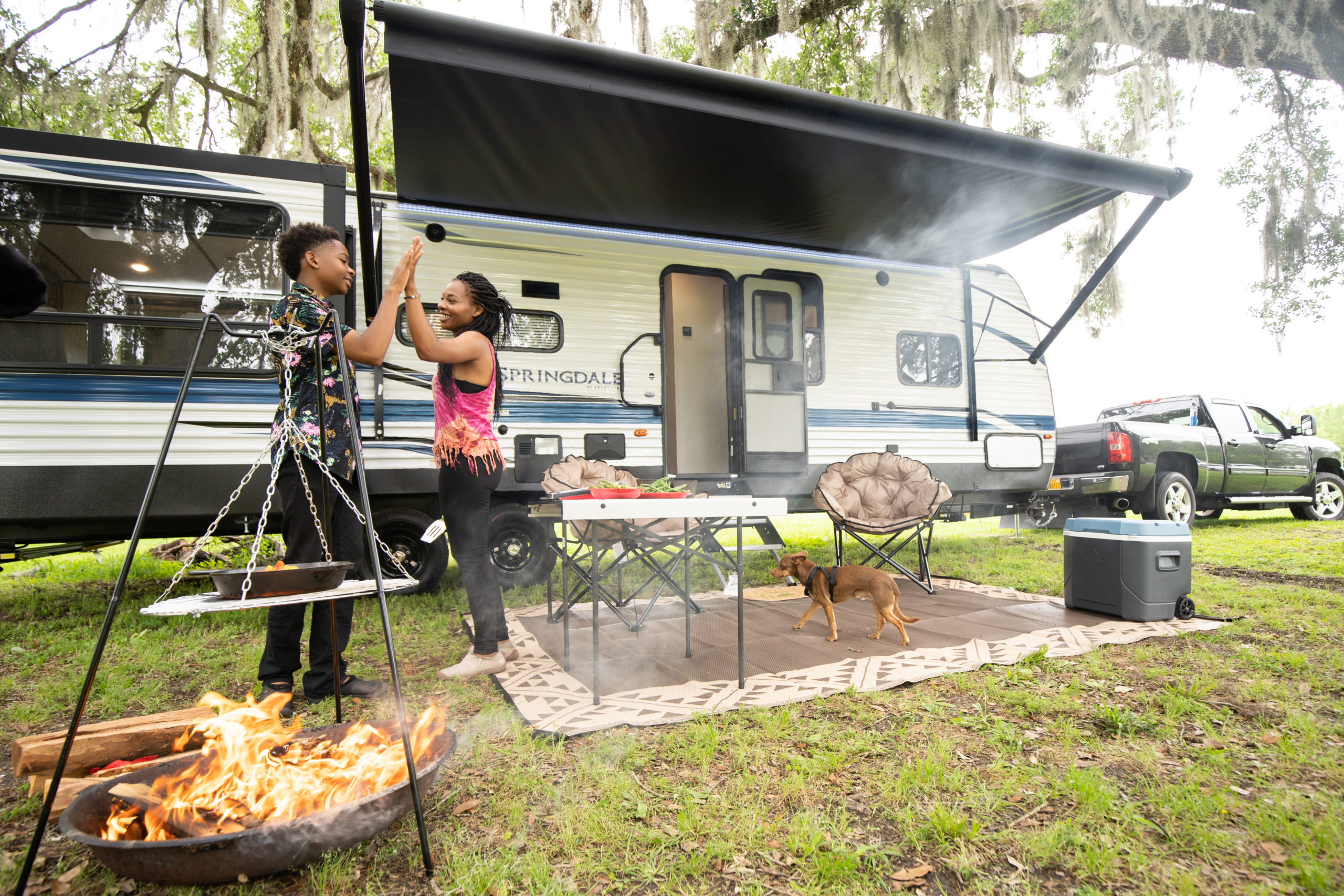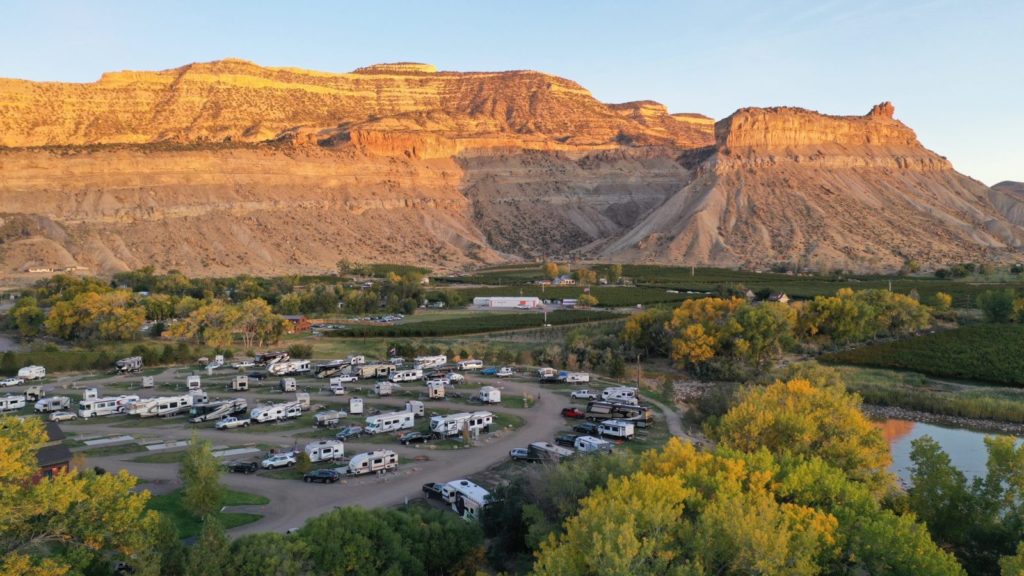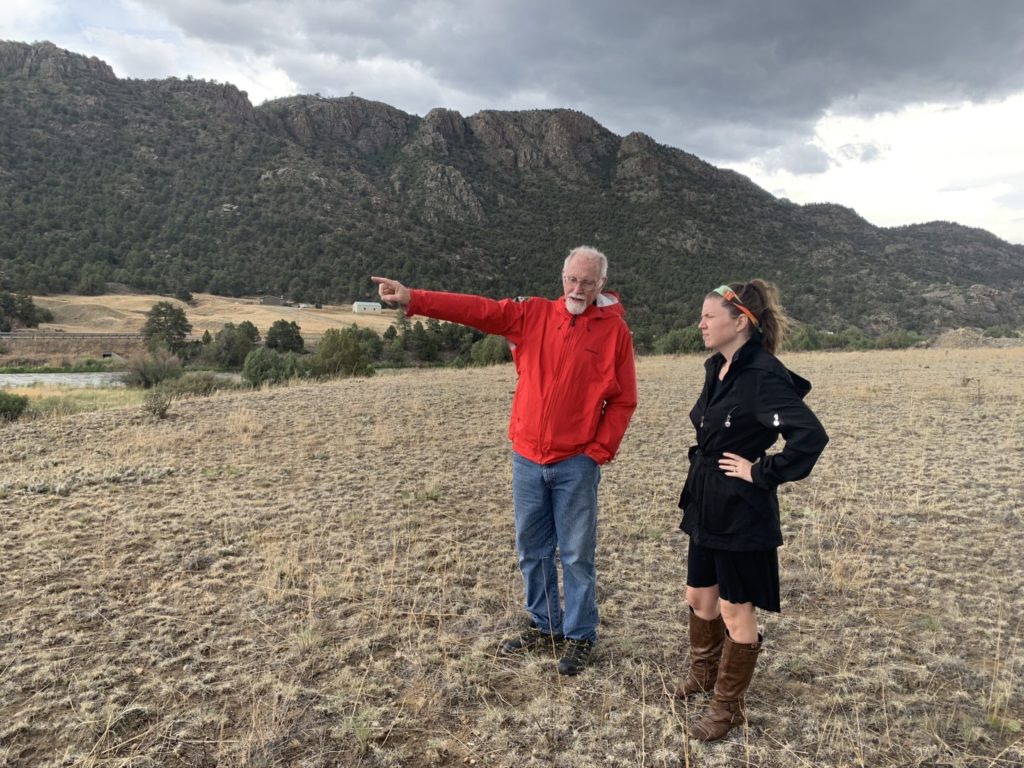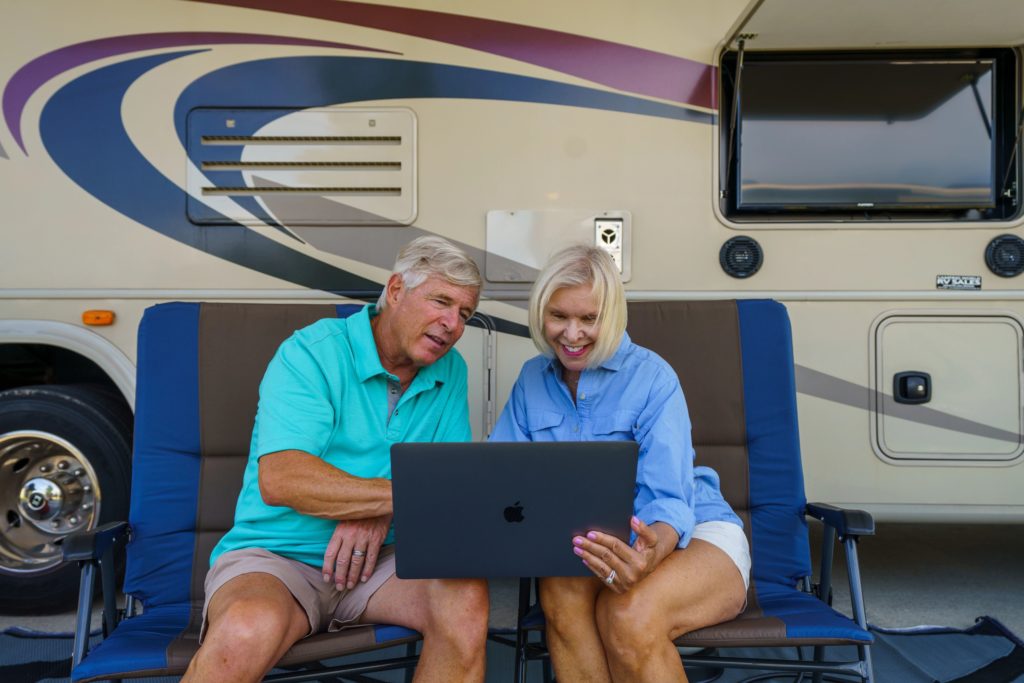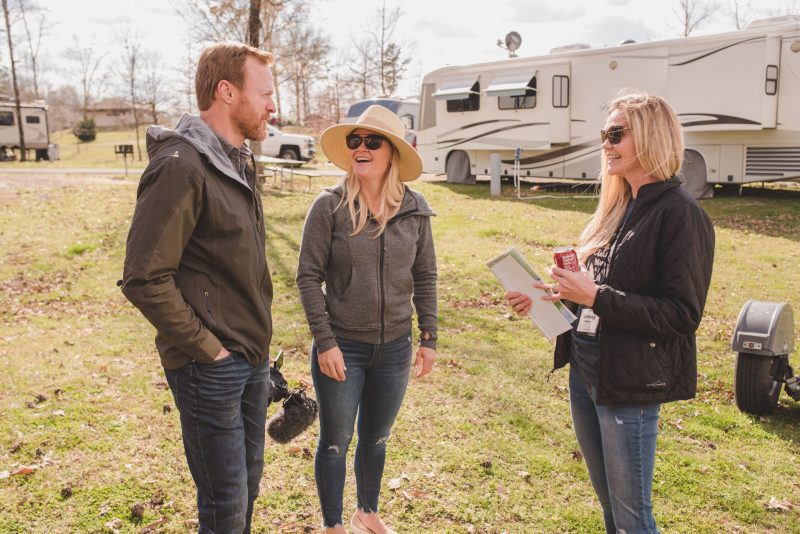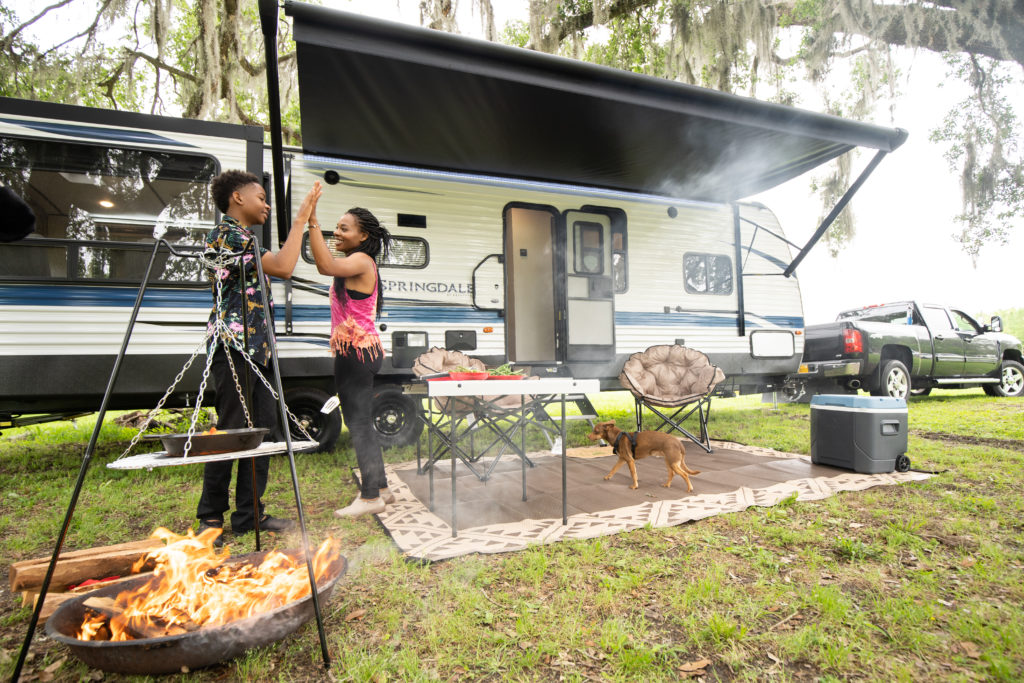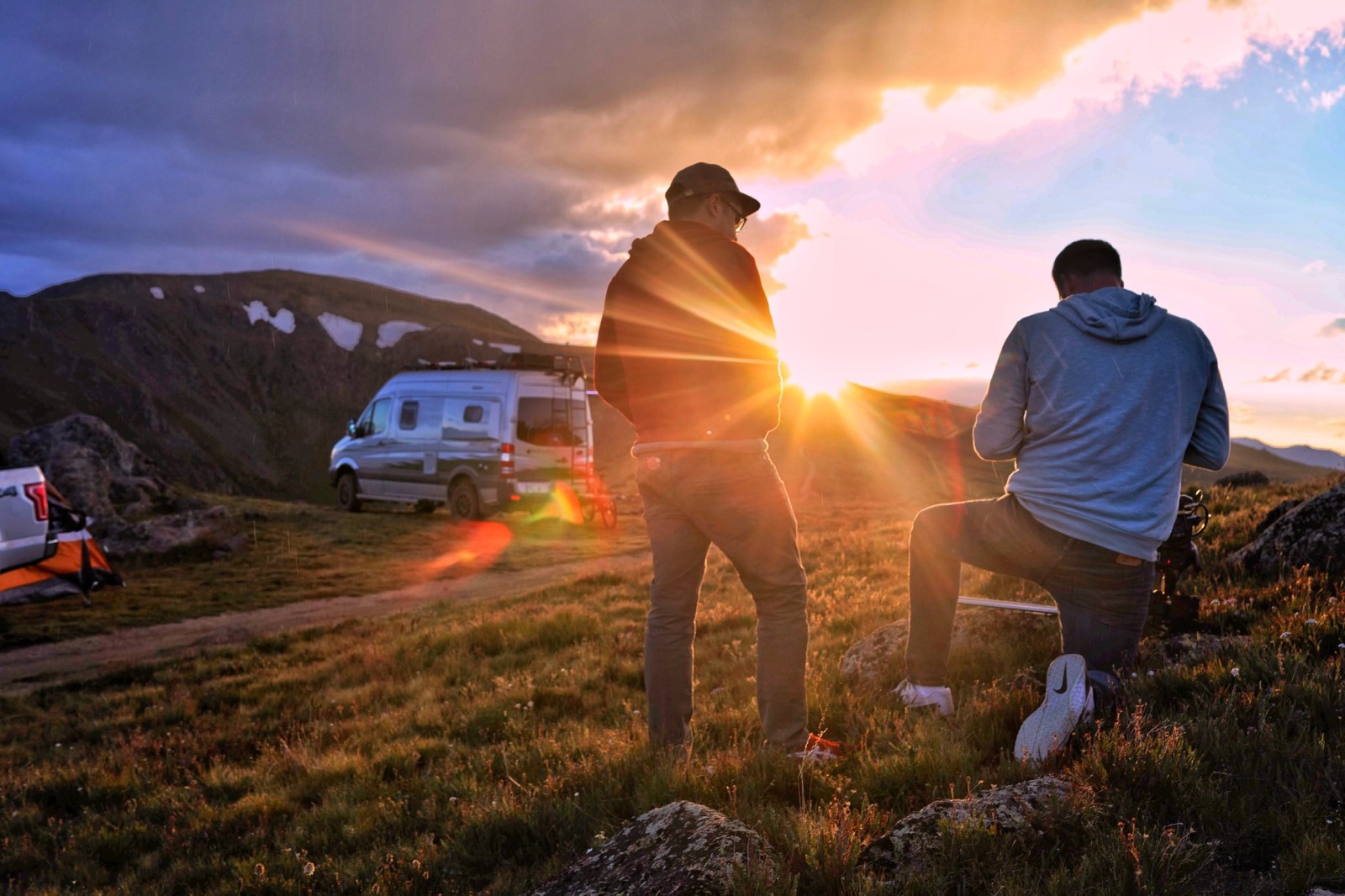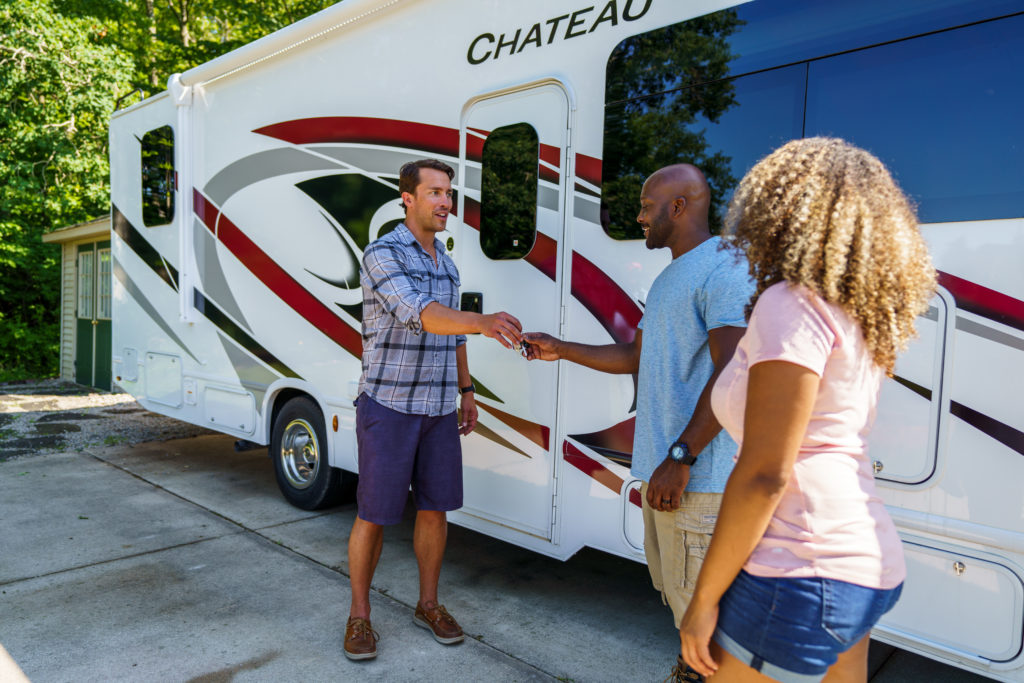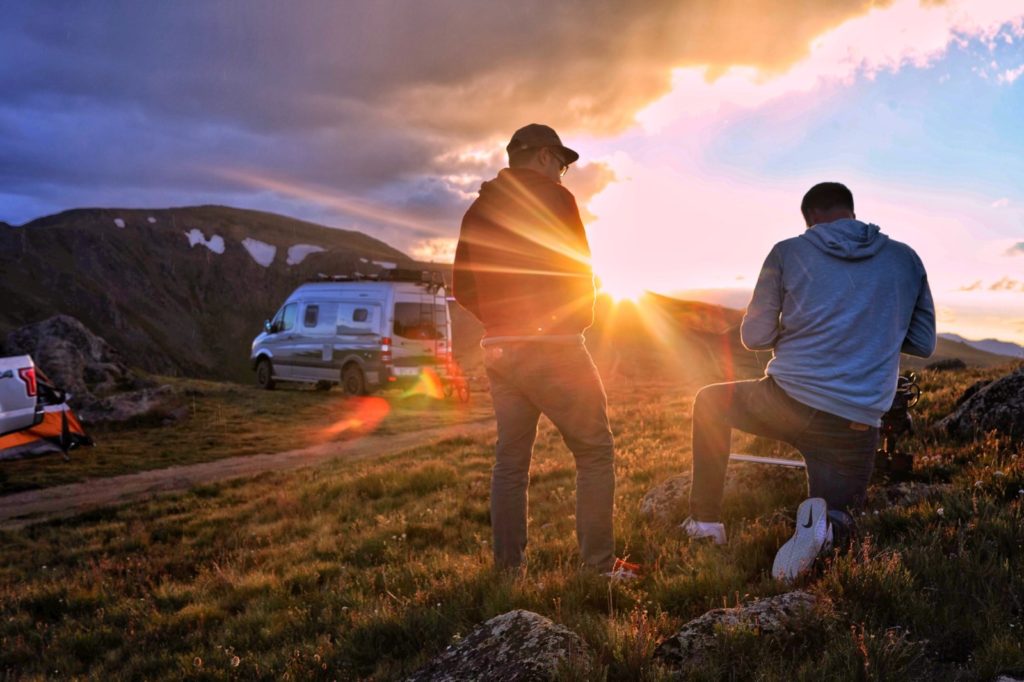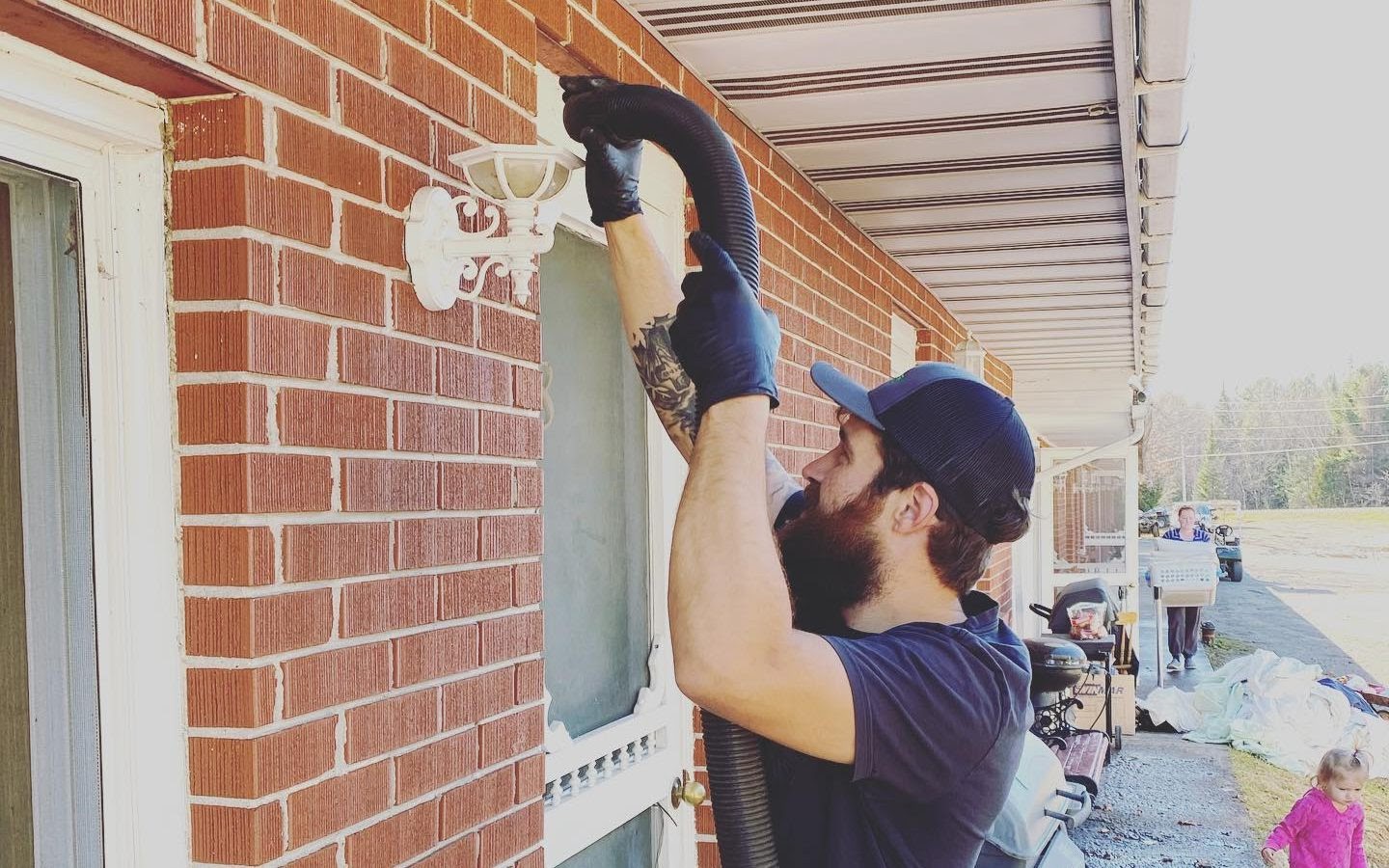
The Costs of Owning a Campground
If you’re in the market to buy a campground, the timing has never been better.
A recent study from Condor discovered that, in the States alone, over 40 million Americans go RVing regularly. Additionally, there are about 16,000 campgrounds in the US.
If we evenly distributed every RVer in America, and they only stayed at one campground for one night at an average price of $30, the average campground would make at least $75,000 a year.
But it still raises an important question:
How much does it cost to start a campground?
To answer that, we’ve interviewed several park owners and operators using our Campground Booking software and put together a comprehensive list of financial considerations before starting a campground.
The reality is whether you’ve been running a campground for years like Joy Guyot (Golden Municipal in Golden, BC), or you’re a new owner like Scott and Kate-lynn Boesveld (Ray’s Place in Minden, ON), operating a campground includes many hidden costs.
We’ll cover financial considerations for both buying an existing RV park and building a campground of your own.
Buying an RV Park
Initial Costs
How much would it cost to start a campground that already exists?
An existing campground with infrastructure already built out will run you between $100,000 to $2 million+ (TRUiC), and generally speaking, you can assume a fair amount of additional renovation will be necessary.
If you’re buying an established campground, “the upfront costs might be higher, but your revenue might be higher as well.” Generally speaking, a “campground business can cost around $10,000 to $50,000 to start, and that doesn’t include the cost of the [property].”
Various factors impact the cost of the land, including location, infrastructure, and acres available.
However, TRUiC says the cost of land will “range from $1,000 an acre if it has a lot of ‘unusable’ land to upwards of $10,000 an acre if most of the land is flat, it’s on a lake or river, or it has outstanding views.”
Cap Rates
A cap rate formula tells you how long it will take to break even and recoup your money on real estate investment. It’s found by calculating the net operating income (NOI) and dividing it by the property value.
For example, let’s say you have a property worth $2 million and an NOI of $150k, you would divide $150,000 by $2,000,000, and your cap rate would be 7.5%.
This number is significant to note because it can inform you before purchasing a campground if you can expect a decent return on investment. (If the cap rate is publicly viewable on a listing, you can calculate this number yourself with a copy of the RV park’s P&L.)
RVParkStore says that “The range of cap rates on the market today fall in the 5% to 15% range with most parks falling into the 8% to 11% range.”
According to outdoor hospitality expert Heath Padgett, the good news for aspiring owners is that many campground owners “aren’t valuing their property based on capitalization rates.” This means that “if you come in and slightly improve processes, you can ultimately have a decent return on investment.”
Now, keep in mind that cap rates vary depending on location. An 8% cap rate for a campground right outside of Seattle will be substantially different than 8% in Seguin, Texas. When comparing cap rates, consider campgrounds in your area or similar regions.
Insurance
Your local campground association will have more information, but according to TRUiC, “the average campground in America spends between $450-$1,500 per year for $1 million in general liability coverage.”
Renovations
While the cost of renovations can vary widely depending on the park, budget for updating infrastructure as well as branding around your new park. Outdoor Command recommends $10,000-$50,000, but this number can easily be higher if you need to bring electric up to code or fix major systems in the park.
To estimate this number before purchasing a park, hire an inspector or a contractor to examine the existing infrastructure.
If you’re ready to check out RV parks for sale in your area, here are a few good places to start.
Riverview Campground in Rocky Mountain House, AB
Costs to Build a Campground (from scratch)
Land
Before you build a campground, you need land. Land costs vary widely across the country, but the national average in the States is around $3,000 per acre.
Licensing and Permits
With any new construction, you will incur permit and licensing costs. These vary by state and may require regular renewal.
With building a campground, consider zoning. You may need to pay to change your land to the proper zoning for opening a campground. Local campground associations will be helpful resources, especially when navigating state and provincial requirements.
Cost per Site
One campground owner informed us that the average construction cost per site ran them around $15,000 for full-hookups, gravel roads, and pads.
Home is Where You Make It suggested that site costs “range anywhere from $15,000 to $50,000 per site depending upon the amenities you plan to install.”
But $15,000-$50,000 is a guesstimate based on including a few different features.
Electric
Many of our campgrounds offer 15-amp, 30-amp, and 50-amp outlets, and some for 110/120 volts. This will cost between $1,500 and $2,500 per site.
Water
According to HomeAdvisor, on average, drilling a 150-foot well costs around $5,500, but it can cost as much as $12,000. Also, anticipate up to $25 per foot of piping.
To build our own campground, said Heath Padgett, “we were quoted around $1,200 per site for city water hookups.”
Septic system
A site-by-site septic system requiring a tank and leach field plus piping to campsites can cost upwards of $40,000 altogether.
Home is Where You Make It advises that, instead, you should install a dump station for guests because it will cut your costs down by as much as 75%. However, you can charge more per night if you offer full hookups.
Other costs for site development
Gravel, asphalt, or concrete to pave designated campsites are another big-ticket item to consider when estimating pricing. You will also likely need to pay for ground leveling, paving roads, and landscaping as well.
Number of Sites
Camper Smarts says that “a general rule of thumb is to have ten sites per acre” and to make sure you give plenty of thought towards the number of fifth wheels and larger motorhomes you’d like to include.
To get a rough estimate of how much it costs to build a campground, multiply the number of acres you own by ten and then multiply by $15,000.
(If you’re looking to expand an existing park, $15,000 per site is an effective way to calculate those costs, too.)
Buildings and Additional Infrastructure on Site
Most campgrounds offer more than just a campsite with hookups. If you’re starting from scratch, you’ll need to build a few buildings as well.
Restrooms
According to our survey results, guests indicated that a quality public restroom (with good water pressure) was a must. Generally speaking, this will cost around $20,000.
Outdoor industry expert Gary Forster has a helpful PDF on designs and materials for camp bathrooms.
The front office of Golden Municipal Campground in Golden, BC
Office
There are a lot of variables here, but HomeAdvisor says office costs can range “between $15,000 and $80,000 or $100 to $550 per square foot.”
Along with your office, you’ll want a solid connection to the internet to handle reservations and communicate with guests.
Industry trends show that 42% of professionals currently work remotely (Upwork), meaning that doubling your office as a co-working space with a strong internet connection will attract more people to your campground year-round.
Campground Booking can save campgrounds 300+ hours a year in office administrative work by managing online reservations for your park.
High-speed internet
On average, you can find a high-speed provider with decent download speeds at around $250 a month. Depending on your campground’s proximity to towers in the area, you shouldn’t pay more than $500 a month at the most.
Estimate around $3,000 for the initial internet set up (ethernet, Wi-Fi repeaters, routers) at your park.
It’s a worthwhile investment, though.
Our data found that 71% of RVers consider Wi-Fi to be “essential.” A few participants even said that a lack of Wi-Fi meant they wouldn’t even stay at a campground.
This article shares best practices for setting up Wi-Fi at your campground.
Calculating Total Costs
To get a better idea of how much it might cost to start a campground, add together your land costs, costs per site (factoring how many sites you want to build), costs for any buildings you’re adding, and the cost to install internet in your park.
New campground owner, Scott Boesveld, put work into restoring Ray’s Place in Minden, Ontario.
Expenses you can skip for now
There are a lot of great features your campground may want to offer, but you don’t need to offer them right away (i.e., fire pits, dog parks, benches, playground, pool, hot tub, etc.).
Our top 10 amenities list (according to RVers) offers plenty of suggestions and tips for saving money. When you’re ready to add additional value to your new campground, these are great places to start.
Is it worth it to buy a campground?
The cost to run an RV park depends on whether you’re buying an established park or building one from scratch. But no matter which way you go, there’s a demand.
So, is it profitable to run a campground?
Our campground owners say it is.
READY TO BUY A CAMPGROUND?
If you’re in the market for a campground, Good Sam provides several campground services to give owners the tools they need to get their business off the ground. Whether it’s marketing and advertising, online reservations, or access to a network of over 2 million RVers, Good Sam makes managing a park as easy as possible. If you’re ready to get started, we can help! Request a demo today.
